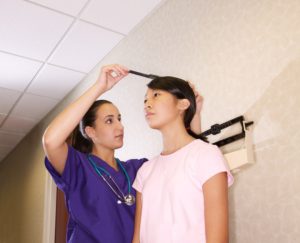
A study found that with every four additional inches of height, the risk of varicose veins increases by 12 percent.
Researcher Dr. Erik Ingelsson explained, “We have pretty robust evidence that height is actually causally related through genetics with an increased risk of having varicose veins.”
Varicose veins is typically a benign condition, but for some, they may experience symptoms such as heaviness in the legs, swelling, and some pain.
For the study, the researchers looked at 413,000 individuals over the age of 40 along with genetically screening 337,000 participants, which included 9,700 with varicose veins.
The researchers confirmed known risk factors for varicose veins including age, gender, obesity, pregnancy, and a history of deep vein thrombosis. When the researchers sorted participants by height, they uncovered that taller individuals were 74 percent more likely to develop varicose veins.
They suggest that being taller puts additional stress on the veins and makes it more difficult to return the blood to the heart.
Although you cannot change your height, you can alter other risk factors that may up your risk of varicose veins, such as controlling your weight or wearing compression socks to aid in the return of blood to the heart.
Cardiologist Dr. Nieca Goldberg concluded, “In cases where these veins are irritated, itching, infected or contributing to swelling, you really should see a vascular specialist because you may be a candidate for a vein procedure to help eliminate the varicose veins.”
Also read:
- Varicose veins natural treatment: How to get rid of spider veins naturally
- 16 best essential oils for varicose veins natural treatment
- Exercises for varicose veins: Yoga poses and exercises for varicose veins treatment